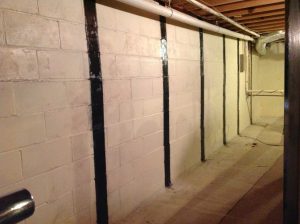3 Situations That Call for Foundation Inspection
The foundation inspection is an essential step in maintaining the structural integrity of settling foundation of your house. The foundation serves as the backbone of the foundation settling your home, providing stability and support for the entire structure. Over time, various factors can contribute to foundation problems, such as soil movement, moisture fluctuations, or improper construction techniques. These issues can compromise the foundation’s strength and lead to problems throughout your home, including cracked walls, uneven floors, or misaligned doors and windows.
uneven floors, or misaligned doors and windows.
Understanding the significance of foundation inspection is crucial for every homeowner. By regularly assessing the condition of your foundation, you can identify and address any emerging issues before they escalate into major structural concerns. This proactive approach protects your investment and ensures the safety and comfort of everyone residing in the house.
Various Instances When Foundation Inspection is Necessary.
1. As part of your home’s maintenance
Including foundation inspection as a regular part of your home’s maintenance is a wise decision. By proactively scheduling inspections, you can identify and address issues before they escalate into costly problems. Foundation issues, such as settling, typically occur gradually over time. Therefore, an annual inspection might not be necessary. However, conducting inspections every five years is generally recommended to ensure any emerging problems with foundation settlement minor cracks are promptly identified and resolved.
During a routine maintenance inspection, a foundation repair contractor will thoroughly examine your entire foundation, for signs of damage or deterioration. They will assess factors like cracks, unevenness, moisture intrusion, soil stability and the condition of supporting structures. Catching problems early can prevent further damage and save you from expensive repairs down the line.
2. When you want to buy or sell a house
Do you want to buy or sell a house? Making sure the house is in the best condition is vital to getting the best value for it. Buyers should inspect the foundation to identify problems and make informed decisions when buying a property. You can negotiate a lower price if there are foundation problems that need to be repaired. You may also choose not to buy a property if the foundation is badly damaged.
Whether you are buying or selling a home, inspecting the foundation plays a crucial role in ensuring a fair transaction. As a prospective buyer, it is essential to examine the foundation before finalizing the purchase. By conducting a thorough inspection, you can identify any existing foundation problems and make informed decisions about the property. If problems are detected, you can negotiate a lower price to allow for necessary repairs. In some cases, the extent and cost of foundation damage may be severe enough to reconsider purchasing the property.
If you are thinking of selling your home, it is equally important to inspect and repair foundation problems. By proactively addressing these problems, you can increase the value of your property and attract potential buyers. A well-maintained foundation demonstrates that your home has been cared for and gives buyers confidence in its structural soundness. Investing in foundation repair before listing your home for sale can increase the selling price and ease the transaction process.
3. If you’ve noticed symptoms of foundation damage
Do you have bowed basement walls? Are your walls cracked? Is the soil beneath the foundation trouble your basement damp? Then you need to have your foundation inspected. Ignoring foundation issues will not make the issues go away. In fact, this will result in even more serious damage that will be more expensive to repair. Bowed basement walls will only continue to bow in further and may one day collapse. Foundation damage can also result in other structural issues around the home.
You will spend a few hundred dollars or much more on repairs if you don’t get them done as soon as possible. If you notice issues such as cracks or bowing, get in touch with a well foundation contractor or repair contractor to have the foundation inspected.
Certain symptoms indicate potential foundation damage in your home. If you observe any of these signs, it’s crucial to have your foundation inspected promptly. Ignoring these warning signs will not make the foundation leaks or issues disappear; instead, they will likely worsen over time, resulting in more severe and costly damage.
Some common indicators of foundation problems include bowed basement walls, cracks in walls or floors, and dampness or water intrusion in the basement. Bowed basement walls are particularly concerning because they can continue to bow inward and may eventually collapse if the foundation issue is not addressed. Foundation damage can also lead to other structural issues throughout your home, such as uneven floors or misaligned doors and windows.
To prevent further damage to sinking or crumbling foundations, and mitigate the potential expenses associated with extensive repairs, it is essential to address foundation issues as soon as you notice them. Contacting a reputable foundation repair contractor is the best course of action. They will conduct a thorough inspection to assess the condition of your foundation and provide appropriate recommendations for repair.
Benefits of periodic foundation inspections.
By scheduling periodic foundation inspections, you can gain several important benefits:
- Early detection of problems: Foundation problems, such as settling, shifting or cracking, usually develop slowly over time. By performing inspections every five years or following the advice of an expert, you can detect these problems in their early stages. Identifying small cracks or signs of movement will allow you to solve them in time, avoiding major damage and reducing repair costs.
- Cost savings: Timely detection and repair of foundation problems can save you a lot of money in the long run. Small cracks or minor settlements can be fixed with relatively simple and cost-effective solutions. However, if left unattended, these problems can worsen and lead to more significant damage, requiring costly repairs or even foundation replacement. By investing in regular inspections, you can nip potential problems in the bud and avoid high expenses in the future.
- Preserve property value: Your home is a valuable asset and its market value depends on its structural integrity. A sound foundation can assure prospective buyers that your property is solid and safe. Conversely, a damaged foundation can significantly affect the value of your home and deter potential buyers. By incorporating foundation inspections into your maintenance routine, you can demonstrate your commitment to maintaining the value of your home and ensuring its longevity.
- Peace of mind: Knowing that your foundation is regularly inspected and maintained gives you peace of mind. Foundation problems can cause a variety of issues throughout your home, such as misaligned windows and doors, cracked walls, uneven floors and plumbing problems. By proactively addressing foundation problems, you can enjoy a stable and comfortable living environment without having to worry about hidden structural problems all the time.
Things to Consider During a Foundation Inspection
When scheduling a foundation inspection, it is important to hire a qualified and experienced foundation repair contractor. These professionals have the knowledge necessary to accurately assess the condition of your foundation. During an inspection, the contractor will typically perform the following tasks:
- Visual Examination: The contractor will perform a thorough visual inspection of the interior and exterior of your home. They will look for signs of foundation problems, such as cracks in walls or floors, unevenness, or gaps around windows and doors. In addition, they will look for signs of water intrusion, such as moisture or mold growth, as these can cause foundation problems.
- Measurement and analysis: The contractor may use specialized tools and equipment to measure and evaluate the stability of the foundation. This may include laser levels, moisture meters, or measuring devices to detect any changes in elevation or movement. These measurements help the contractor determine the severity of the problem and determine the appropriate repair program.
- Documentation and recommendations: After the inspection, the contractor will provide you with a detailed report with his findings and recommendations. This report may include photographs, measurements, and a thorough analysis of the condition of the foundation. Based on his assessment, the contractor will recommend the most appropriate method of repair and provide an estimate of the associated costs.
Acting on the inspection results
Once you receive the inspection report, it is important that you act on it in a timely manner. If the inspection reveals minor problems, such horizontal cracks such as hairline cracks or minimal settlement, the contractor may recommend preventive measures such as installing proper drainage, improving grading, or sealing cracks. These measures can help mitigate further damage and prevent future problems.
If more serious foundation problems are identified, the contractor will propose foundation repair work
appropriate repair options. These may include methods such as foundation stabilization, foundation underpinning, or concrete slab and underpinning, depending on the specific nature of foundation type of the problem. It is essential that you consult with the contractor to fully understand the proposed repair program, including timelines, cost, and potential impact on your daily life.
Once you’ve agreed on the repair plan, it’s advisable to engage a reputable foundation repair company with experience in executing the repair method and recommended solutions. Choosing a trusted foundation insulation professional ensures that the repairs are carried out effectively and that your home’s structural integrity is fully restored.
In conclusion, including foundation inspection as part of your home’s regular maintenance routine offers numerous advantages. From early problem detection and cost savings to preserving property value more extensive repairs, and providing peace of mind, periodic inspections help maintain the stability and safety of the foundation movement your home. By promptly addressing any issues identified during inspections, you can safeguard your investment, prevent further damage, and ensure a comfortable living environment for years to come. Remember, a small investment in regular inspections can save you significant expenses and headaches in the future.
What will you do now?
Many professional contractors offer free inspections and consultation on basement foundations. Those that do charge offer these services at very affordable fees. Take advantage of these services to ensure your foundation is in its best condition. An inspection could save you thousands of dollars in repairs.
Once you have received the inspection report and have a clear understanding of your foundation’s condition, it’s crucial to take action promptly. Delaying necessary repairs or neglecting foundation issues can lead to further deterioration, compromising the structural integrity of your home and increasing the costs of remediation. Here are the steps to take after receiving the inspection report:
of remediation. Here are the steps to take after receiving the inspection report:
- Understand the Findings: Carefully review the inspection report provided by the foundation repair contractor. Pay attention to the identified issues, their severity, and the recommended repair solutions. If you have any questions or need further clarification, don’t hesitate to contact the contractor for additional information.
- Evaluate Repair Options: Once you have collected multiple quotes and recommendations, compare them to determine which repair options align with your budget, timeframe, and the severity of the foundation issues. Consider the reputation and experience of the contractors, the quality of materials used, and the warranties provided for the repairs.
- Engage a Professional Contractor: Select the foundation repair contractor that best meets your needs and offers the most comprehensive and cost-effective solution. Ensure that the contractor is licensed, insured, and experienced in handling foundation repairs. Review and sign a detailed contract that outlines the scope of work, timelines, payment terms, and any warranties or guarantees.
- Coordinate Repairs: Work closely with the chosen contractor to schedule the repairs and coordinate access to your property. Keep in mind that foundation repairs may involve excavation, heavy equipment, and disruption to your daily routine. Communicate any concerns or specific requirements you may have during the repair process to ensure a smooth and satisfactory experience.
- Monitor the Repair Process: Throughout the repair process, maintain open communication with the contractor. Ask for progress updates and address any concerns promptly. A reputable contractor will keep you informed and provide guidance on any unexpected challenges that may arise during the repairs.
- Post-Repair Inspections: Once the repairs are completed, it’s advisable to schedule a post-repair inspection with the contractor. This inspection will verify that the repairs were successfully executed and that the foundation has been restored to its optimal condition. It provides an opportunity to address any remaining questions or concerns before finalizing the project.
- Preventative Measures and Ongoing Maintenance: After the repairs, it’s important to implement preventative measures and ongoing maintenance practices to protect your foundation. This includes adhering to proper drainage practices, maintaining consistent moisture levels around the foundation, and addressing any plumbing leaks or landscaping issues that may affect the foundation’s stability. Regularly inspect the foundation for signs of new damage or changes and promptly address any emerging issues.
Taking immediate action on critical repairs based on the inspection findings is essential to ensure the long-term stability of your home’s foundation. By engaging a professional contractor, addressing the identified issues, and implementing preventative measures, you can mitigate further damage and maintain the structural integrity of your property. Remember, investing in timely repairs and proactive maintenance of basement foundation is a crucial step toward preserving the value and safety of your home.
Talk to a Foundation Inspection expert today!
Contact the Professionals at Budget Dry WaterproofingToday! 203-421-8560

Budget Dry is based in Killingworth, Connecticut and has been recognized as the areas leading basement waterproofing and foundation repair company.
We are passionate about providing the absolute best service to each home and homeowner we encounter, because we understand just how important your home is to you. We pride ourselves on our excellent customer service and use of cutting edge industry technology.
Budget Dry Basement Waterproofing is a leader in Basement waterproofing and basement restoration. Every Basement flood, leak or crack is evaluated thoroughly to ensure that we provide you with the best solution. So you can be secure and confident in the knowledge that Budget Dry treats the problem, not the symptom!
